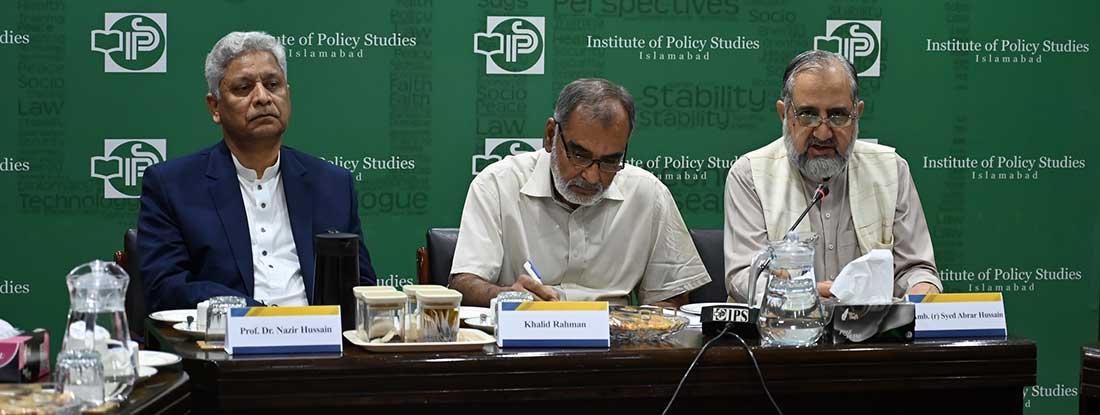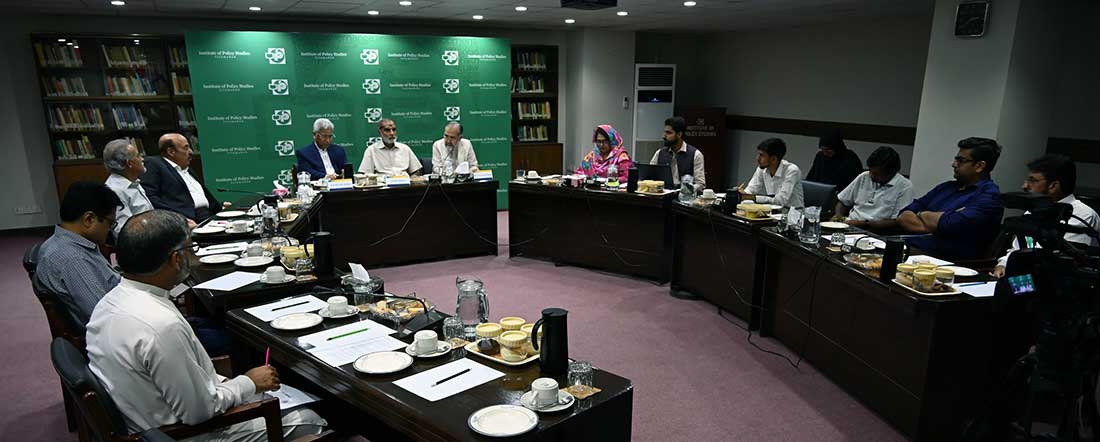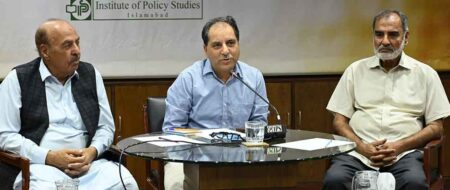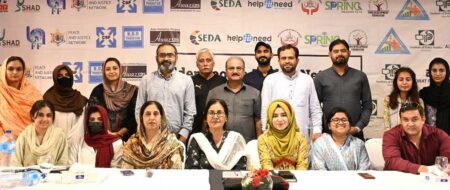‘Governance or Control: Analyzing the 2024 ‘Union Territory of Jammu and Kashmir’ Assembly Elections’
Manipulated electoral process in IOJK deepens control, sidelining long-promised plebiscite: Experts
The ongoing elections in Indian-occupied Jammu and Kashmir, marred by manipulations, cannot replace the long-promised plebiscite that Kashmiris rightfully deserve. While the need for local representation to address daily governance and security challenges is pressing, these elections serve only to entrench India’s control over the region.
For Pakistan to move forward, a more strategic and unified approach is essential – one rooted in diplomatic engagement and a sustained commitment to the just cause of Kashmiri self-determination.
The views were expressed during a roundtable discussion titled ‘Governance or Control: Analyzing the 2024 ‘Union Territory of Jammu and Kashmir’ Assembly Elections’ organized by IPS on September 26, 2024. The session, moderated by Ambassador (r) Syed Abrar Hussain, vice-chairman IPS, was addressed by Khalid Rahman, chairman IPS, Prof. Nazir Hussain, former dean School of Politics and International Relations, Quaid-i-Azam University, Islamabad, Farzana Yaqoob, former minister of AJK and IPS research associate, and Dr. Amna Mahmood, professor, Faculty of Social Sciences, International Islamic University, Islamabad.

Speakers noted that Kashmiri youth, once hopeful, now face increasing marginalization as India tightens its grip on the region. Despite their historic boycott of the electoral process, Kashmiris now find political engagement to be an administrative necessity, driven by the need to address daily governance and security issues.
This has been accompanied by an alarming transformation as India’s control over Jammu and Kashmir has shifted from mere governance to an overt exercise of power, using elections as a tool to legitimize its hold on the region. By pushing these elections, India seeks to sidestep the plebiscite that Kashmiris not only deserve but are entitled to under international law.
By hosting foreign delegates, India seeks to create a façade of conducting free and fair elections. However, pre-poll manipulations – such as the disproportionate allocation of seats between the Jammu and Kashmir regions – have already compromised the integrity of the process. The Bharatiya Janata Party (BJP) is exerting significant influence, with the potential for independent candidates to become kingmakers, further diminishing any hope for genuine representation.
The current situation in Pakistan is also impacting Kashmir. The instability and deteriorating conditions in Pakistan have fostered a sense of despair among Kashmiris, who have historically looked to Pakistan for moral and political support. The participants expressed concern that Pakistan has missed several opportunities to resolve the Kashmir issue, leading to a growing perception of ineffectiveness in this critical context.
Moreover, the absence of strong Kashmiri leadership – especially since the passing of Hurriyat leader Syed Ali Geelani – has left the region without a clear indigenous narrative to counter India’s influence. This leadership vacuum has made it easier for India to tighten its control, with the BJP poised to further consolidate its position by potentially pushing a resolution in Kashmir’s legislative assembly to legitimize the revocation of Article 370, which stripped the region of its special status.
In light of these challenges, participants agreed on the necessity of fostering political will to unite the Kashmiri leadership and take concrete steps to address the ongoing issues in Indian-occupied Kashmir. Long-term planning, consistency in Pakistan’s Kashmir policy, and patience will be crucial to achieving these objectives.
Khalid Rahman, in his concluding remarks, emphasized the need for Pakistan to engage both internally and externally to raise awareness about the Kashmir cause. The people of Pakistan should remain steadfast in their commitment to core values, resisting divisive narratives that may undermine national unity, he said.
He further noted that the international order is in a state of transition, offering new opportunities for nations to redefine their roles on the global stage. He advised that Pakistan should actively seek and leverage these opportunities to develop a comprehensive framework for addressing the Kashmir issue.













